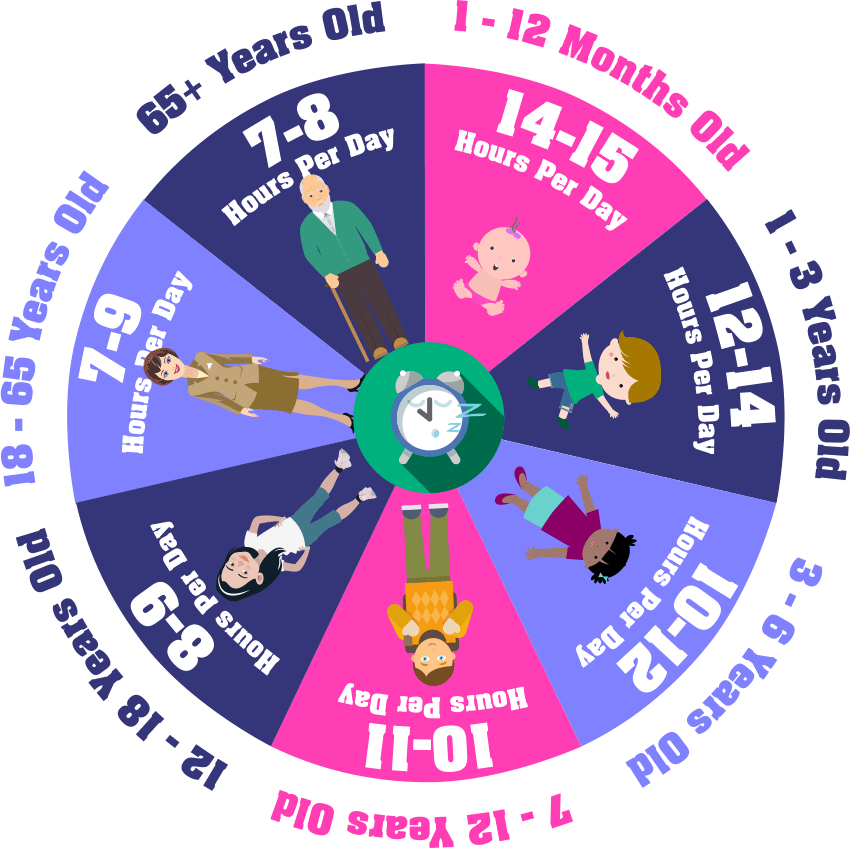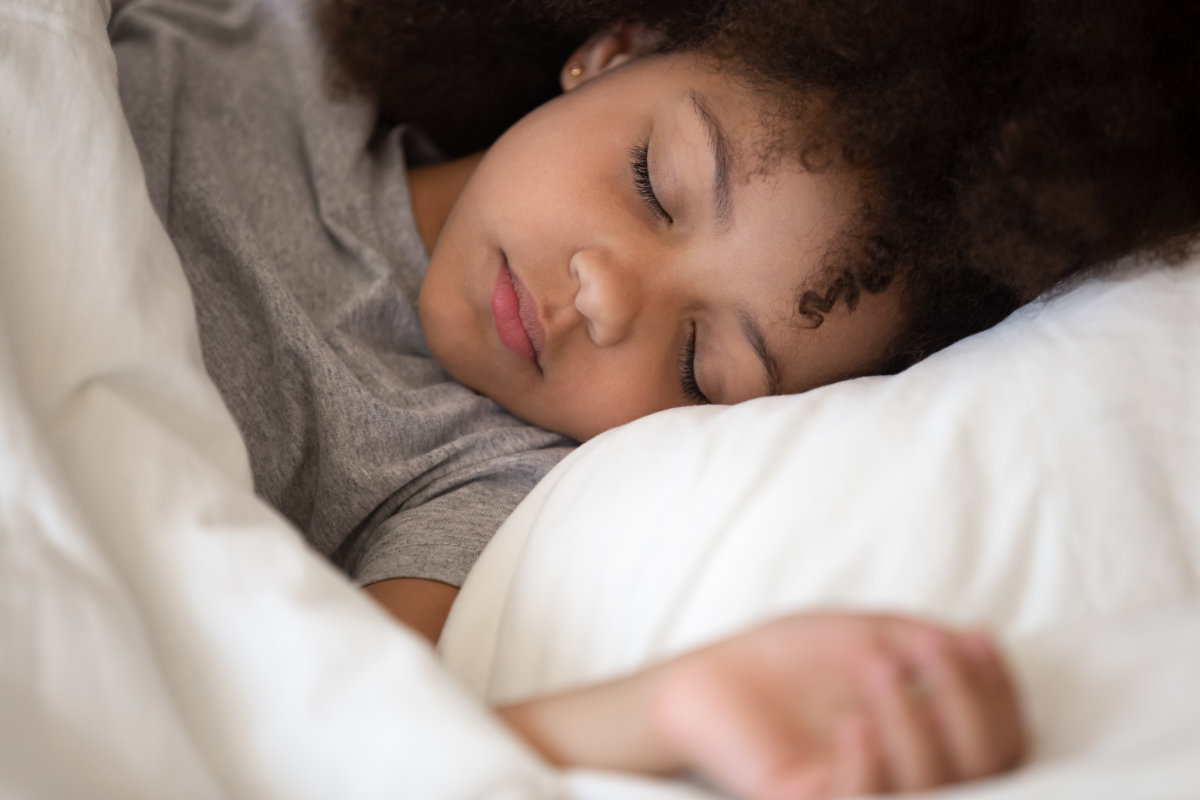As the new school term started at the beginning of September, and children’s sleep starts to settle into a more regular pattern again, we thought it might helpful to make parents aware of how much sleep their child needs and what time they potentially should go to bed.
It’s important to note that the hours are on the chart are a guide and it’s more important to focus on sleep quality, not quantity, and establish a good bedtime routine and . Just like adults, some children need more sleep, some need less.
However it’s one question that we get asked a lot – how much sleep does my child need? While there is no hard and fast rule, the general guide is toddlers need around 12 hours of sleep a night; children aged three to six – 10-12 hours; seven-12 years olds – 10-11 hours; and teenagers – around eight to nine hours.

This means that a seven year old, who wakes at 7am, should ideally be in bed between 7pm and 9pm. For some a 7pm bedtime may not be realistic, especially if you’re a working parent who doesn’t get home until 6pm and needs to prepare dinner, check homework and sort bath and bedtimes as well as having some quality family time! However, it’s not impossible.
When my son was five, he was upstairs by 7pm ready for quiet time. We spent time reading (that’s our quality family time – talking about our day and reading a book before bed) and he was often asleep by 7.30pm. He’s now 8 years old and he is more likely to be upstairs for 8pm ready for quiet time, with a bedtime of around 8.30pm. Don’t get me wrong, we are not rigid with this. Some days my youngest asks to go to bed earlier, some days it’s gone 9pm by time we’re getting him to sleep but generally on the whole we stick to this routine (even at weekends) as he tends to wake between 6.45 and 7.30am regardless of what time he goes to bed. Our weekends are when we spend quality family time and also catch up on any homework.
Vicki Dawson of The Children’s Sleep Charity said: “Sleep is so important in order to ensure that children can meet their full potential in every aspect of their lives. It can be helpful to have an awareness of roughly how much sleep a child needs but we do need to consider that all children are individuals. A good bedtime is really helpful in order to plan the evening routine and fit in quality family time.”
What’s interesting is that teachers can tell which pupils are well-rested and ready for the day ahead, and which are not. Also, parents don’t seem to realise how sleep deprived their children are during the day and how it affects their behaviour and performance at school.
We surveyed teachers a few years ago and we were shocked to find that nearly a quarter (24%) of the teachers questioned admitted that they had had to resort to letting children who are very tired sleep in a corner of the classroom. For two thirds of teachers (65%) the problem is so serious they consider that the long term progress of their pupils can be affected while nearly half (48%) said lack of sleep made children unruly and badly behaved.
Some kids can function well on less sleep than others. It’s not set in stone but advises parents on roughly what sort of sleep patterns children of different ages need – many parents don’t actually know. A study we did in 2009 showed that 48% of parents with children under 5 didn’t know that a 3 year old needs 12 hours sleep a night, 33% didn’t know that 6-12 year olds needs 10 hours sleep and 39% didn’t know that teens need 8-9 hours a night.
Sleep and children will always be a hot topic and a serious issue so it’s important that schools, public health departments and parents all work together to help combat sleep deprivation in children.

